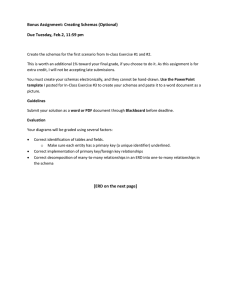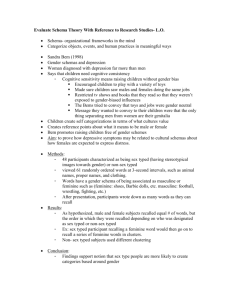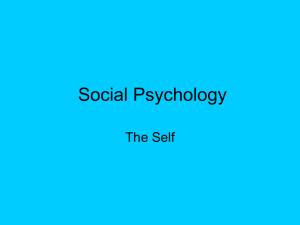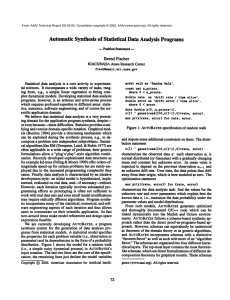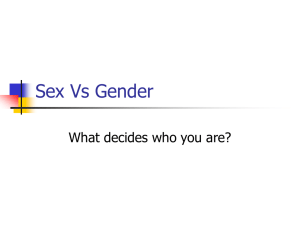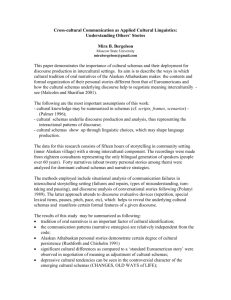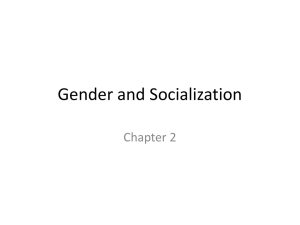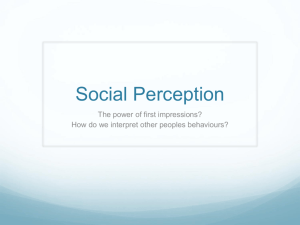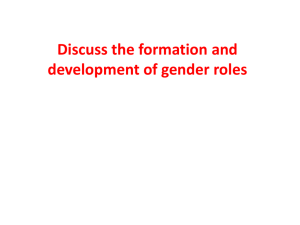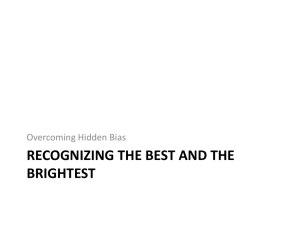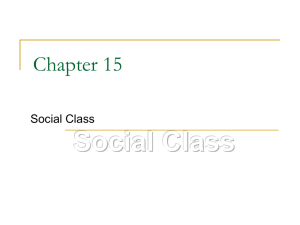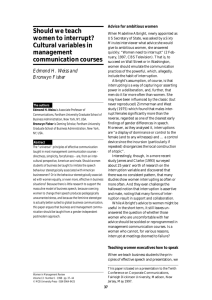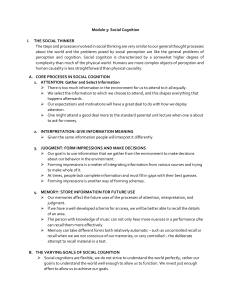what is this phenomenon called gender
advertisement
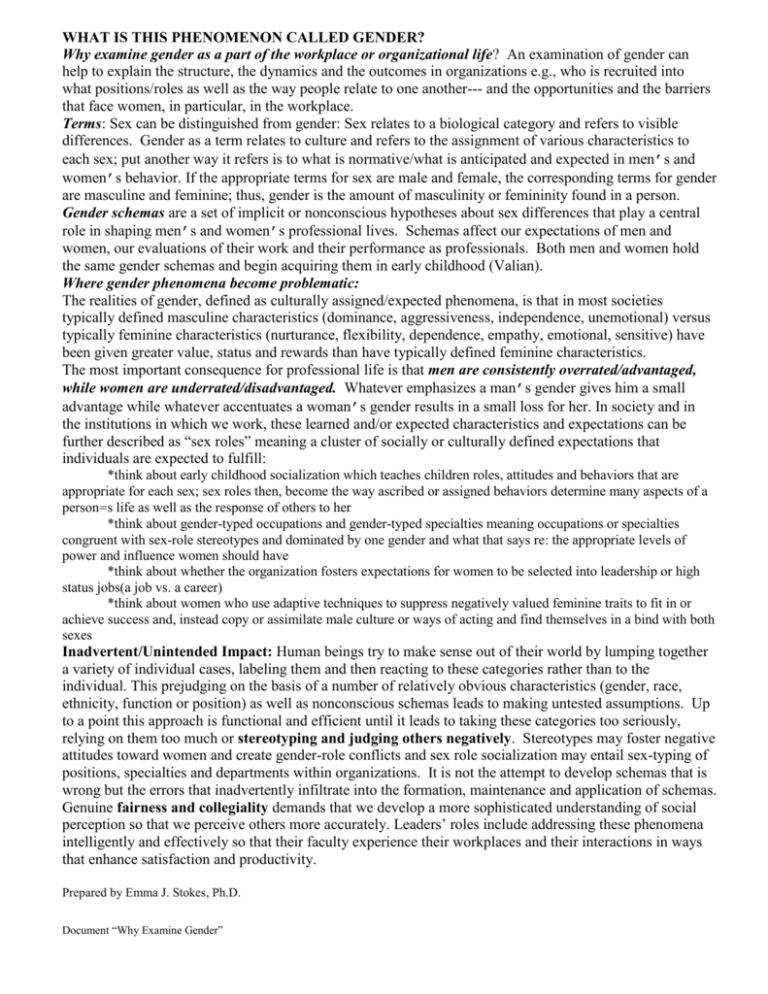
WHAT IS THIS PHENOMENON CALLED GENDER? Why examine gender as a part of the workplace or organizational life? An examination of gender can help to explain the structure, the dynamics and the outcomes in organizations e.g., who is recruited into what positions/roles as well as the way people relate to one another--- and the opportunities and the barriers that face women, in particular, in the workplace. Terms: Sex can be distinguished from gender: Sex relates to a biological category and refers to visible differences. Gender as a term relates to culture and refers to the assignment of various characteristics to each sex; put another way it refers is to what is normative/what is anticipated and expected in men’s and women’s behavior. If the appropriate terms for sex are male and female, the corresponding terms for gender are masculine and feminine; thus, gender is the amount of masculinity or femininity found in a person. Gender schemas are a set of implicit or nonconscious hypotheses about sex differences that play a central role in shaping men’s and women’s professional lives. Schemas affect our expectations of men and women, our evaluations of their work and their performance as professionals. Both men and women hold the same gender schemas and begin acquiring them in early childhood (Valian). Where gender phenomena become problematic: The realities of gender, defined as culturally assigned/expected phenomena, is that in most societies typically defined masculine characteristics (dominance, aggressiveness, independence, unemotional) versus typically feminine characteristics (nurturance, flexibility, dependence, empathy, emotional, sensitive) have been given greater value, status and rewards than have typically defined feminine characteristics. The most important consequence for professional life is that men are consistently overrated/advantaged, while women are underrated/disadvantaged. Whatever emphasizes a man’s gender gives him a small advantage while whatever accentuates a woman’s gender results in a small loss for her. In society and in the institutions in which we work, these learned and/or expected characteristics and expectations can be further described as “sex roles” meaning a cluster of socially or culturally defined expectations that individuals are expected to fulfill: *think about early childhood socialization which teaches children roles, attitudes and behaviors that are appropriate for each sex; sex roles then, become the way ascribed or assigned behaviors determine many aspects of a person=s life as well as the response of others to her *think about gender-typed occupations and gender-typed specialties meaning occupations or specialties congruent with sex-role stereotypes and dominated by one gender and what that says re: the appropriate levels of power and influence women should have *think about whether the organization fosters expectations for women to be selected into leadership or high status jobs(a job vs. a career) *think about women who use adaptive techniques to suppress negatively valued feminine traits to fit in or achieve success and, instead copy or assimilate male culture or ways of acting and find themselves in a bind with both sexes Inadvertent/Unintended Impact: Human beings try to make sense out of their world by lumping together a variety of individual cases, labeling them and then reacting to these categories rather than to the individual. This prejudging on the basis of a number of relatively obvious characteristics (gender, race, ethnicity, function or position) as well as nonconscious schemas leads to making untested assumptions. Up to a point this approach is functional and efficient until it leads to taking these categories too seriously, relying on them too much or stereotyping and judging others negatively. Stereotypes may foster negative attitudes toward women and create gender-role conflicts and sex role socialization may entail sex-typing of positions, specialties and departments within organizations. It is not the attempt to develop schemas that is wrong but the errors that inadvertently infiltrate into the formation, maintenance and application of schemas. Genuine fairness and collegiality demands that we develop a more sophisticated understanding of social perception so that we perceive others more accurately. Leaders’ roles include addressing these phenomena intelligently and effectively so that their faculty experience their workplaces and their interactions in ways that enhance satisfaction and productivity. Prepared by Emma J. Stokes, Ph.D. Document “Why Examine Gender”
